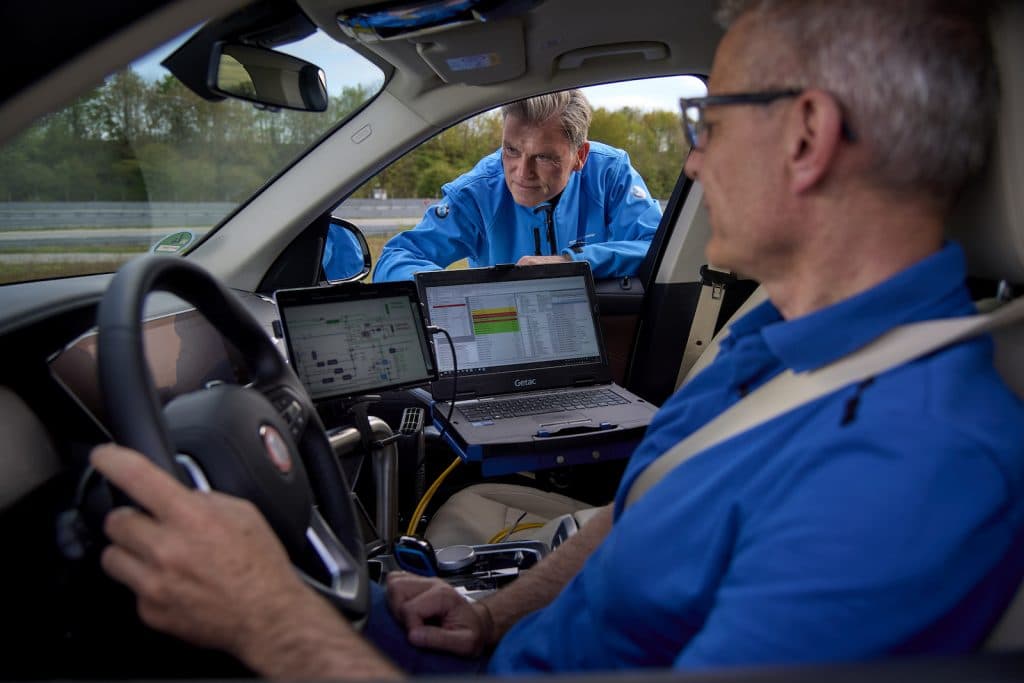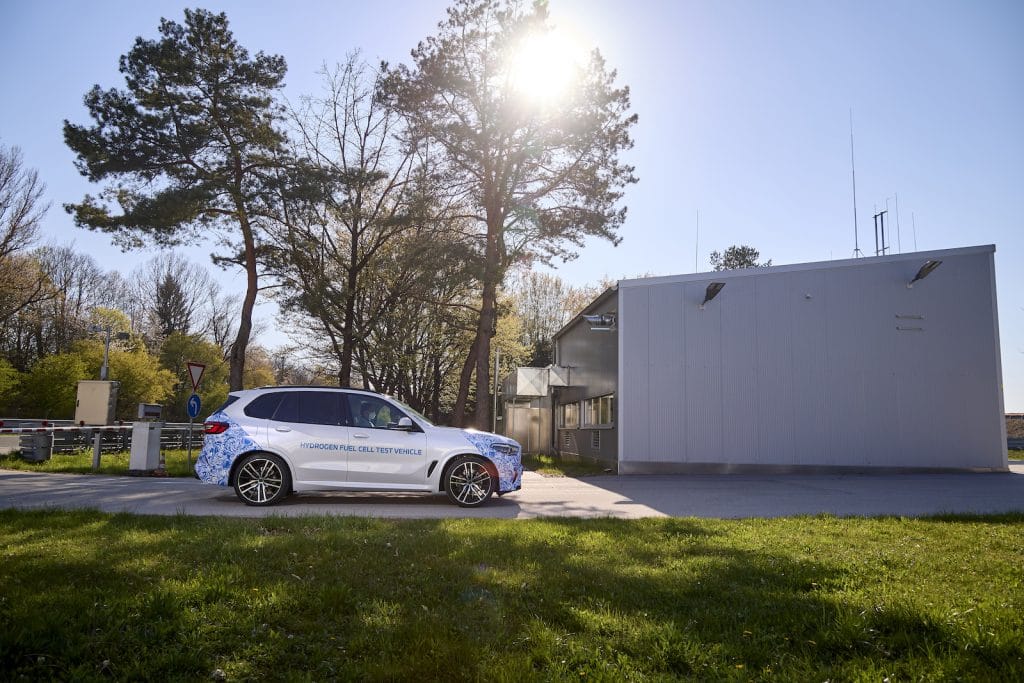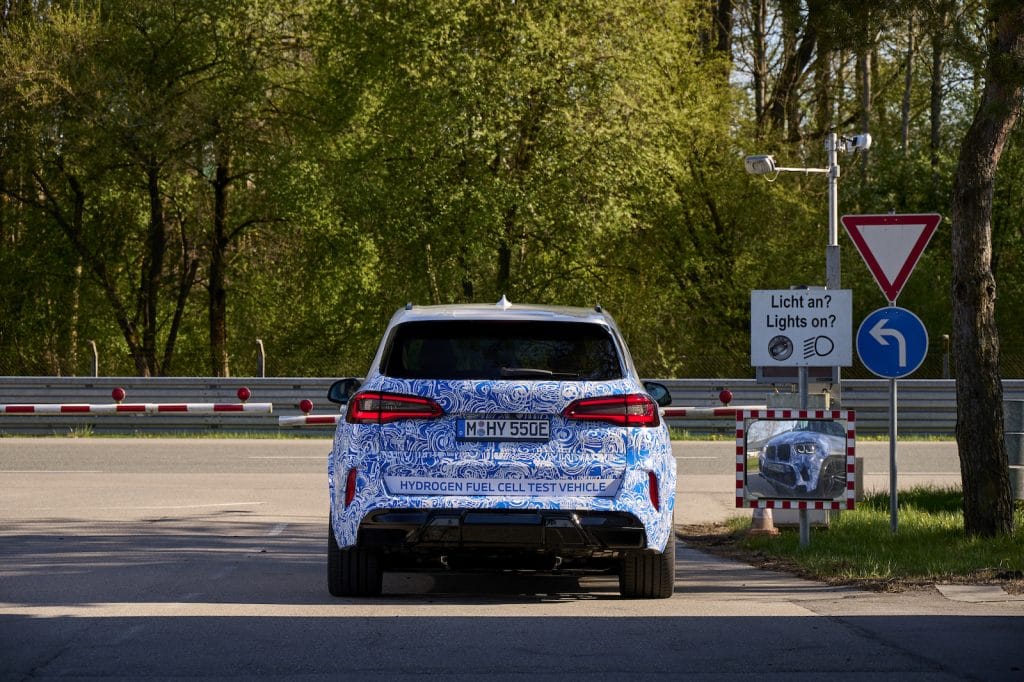BMW revealed it’s taking the next step in the development of its i Hydrogen Next fuel-cell technology, starting “real-life” testing of the new drivetrain on European roads.

The company’s i Hydrogen Next is a hydrogen-electric drivetrain it has developed in partnership with Toyota. The two companies have been working together for nearly a decade on the technology. The goal is produce a system that can be used in a vehicle similar to the BMW X5, the company noted.
“Hydrogen fuel cell technology can be an attractive option for sustainable drive trains – especially in larger vehicle classes,” according to Frank Weber, member of the Board of Management of BMW AG responsible for Development. “That is why road testing of near-standard vehicles with a hydrogen fuel cell drive train is an important milestone in our research and development efforts.”
Another zero-emission powertrain
BMW’s i Hydrogen Next system is made up of a pair of 700-bar tanks holding 13.2 pounds of hydrogen, a fuel cell and an electric motor. That electric motor, the fifth iteration, powers the iX3 and will be used in the recently introduced i4 and the iX.

The fuel cell uses hydrogen and oxygen to generate electricity and sends it to the motor. The battery can produce a temporary power spurt of 374 horsepower, which can be used for passing or other maneuvers requiring a substantive burst of speed. However, the system typically produces a steady 170 hp.
“The system delivers an output of 275 kW/374 hp that corresponds exactly to that of the most powerful six-cylinder in-line petrol engine currently used in BMW models — thereby guaranteeing the driving dynamics the brand is known for,” the company noted in statement.
Other FCV efforts
Currently, only a handful of manufacturers produce fuel-cell vehicles, or FCVs, all of them Asian. And their products are available in only limited markets.

South Korea’s Hyundai and Japan’s Honda and Toyota. All have focused on passenger vehicles like the Hyundai Nexo and recently redesigned Toyota Mirai.
In addition to providing clean power quickly, fuel cells provide an alternative to battery-electric vehicles. They’re primary benefits are that they often provide more range and can be refueled more quickly than their battery-only counterparts, officials noted.
The challenge is the lack of a refueling infrastructure, but there are signs that this is being addressed, particularly in Europe, through public-private partnerships.
There is an ongoing debate over where hydrogen vehicles could develop the strongest demand, however. And a number of proponents believe the bigger opportunity is in the medium and heavy-duty truck segments.
They argue that hydrogen power offers key advantages over battery drive technology in such applications. Notably, trucks can store enough of the lightweight gas to deliver 1,000 miles or more range, while refueling takes minutes, not hours, as with an extended-range battery.








With more stories like this, I’m willing to stop criticizing their recent styling disasters.
Go fuel cells!